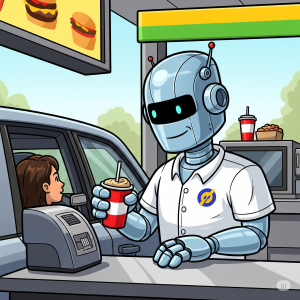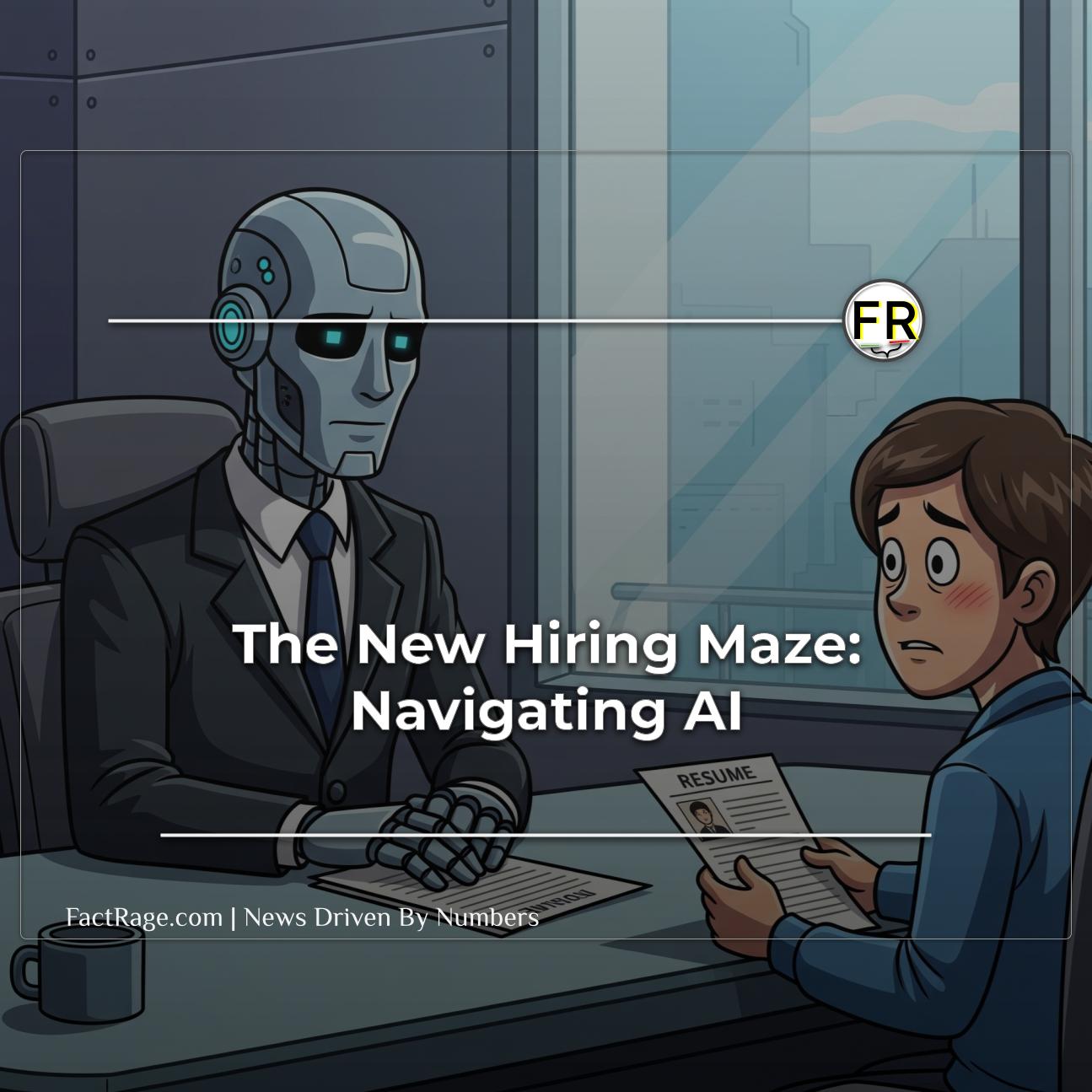NATIONWIDE – The quest for employment has become a frustrating ordeal for many job seekers across the U.S., with anecdotal evidence and recent reports suggesting a market far tougher than official unemployment rates indicate. Despite seemingly positive macroeconomic figures, a pervasive sense of difficulty in landing jobs is emerging, particularly for recent graduates and even experienced professionals in once-booming sectors like technology. A significant factor in this challenging landscape is the increasing integration of Artificial Intelligence (AI) into various industries and hiring processes.
Key Facts:
- Job Market Disconnect: While official unemployment rates remain low and job additions continue, many job seekers report extreme difficulty in securing interviews or offers, often after hundreds of applications.
- AI’s Impact on Entry-Level: New research suggests AI is already affecting entry-level tech jobs, with significant reductions in hiring for recent college graduates as AI automates routine tasks.
- Hiring Process Automation: AI is increasingly used in screening résumés, writing job descriptions, and even conducting initial interviews, making the traditional job search feel less human and more opaque.
This perceived “barren” job market, particularly for those just starting out or seeking new opportunities, raises critical questions about the future of work and the evolving demands of employers.
The Quiet Crisis: Beyond the Official Numbers

The official federal jobs report for April paints a relatively rosy picture, showing historically low unemployment and continuous job additions. However, many job seekers, from software engineers to AI product managers and even former government advisers, tell a different story. They describe a market where thousands of applications yield no interviews, and even experienced professionals struggle to generate interest. This sentiment is echoed across social media platforms like TikTok, where viral posts highlight the despair of prolonged job searches.
This disconnect may stem from a “narrow scope of employment growth.” Reports indicate that job growth is largely concentrated in specific sectors like private healthcare, education, and local government, while fields traditionally seen as strong, such as tech, finance, and manufacturing, have slowed hiring or shed jobs. This disproportionately impacts both young people with limited experience and older professionals with higher salary expectations.
The AI Effect: Shrinking Opportunities and Automated Hiring
One of the most significant emerging factors in the challenging job market is the growing influence of artificial intelligence. Research from SignalFire, a data-driven venture capital firm, suggests that AI may already be shrinking entry-level tech jobs. In 2024, Big Tech companies reportedly reduced the hiring of new graduates by 25% compared to 2023, with startups seeing an 11% decrease.
Experts believe this is due to AI’s capability to automate routine, low-risk tasks typically performed by entry-level workers, such as basic coding, debugging, financial research, and software installation. For instance, AI financial analyst tools can now perform much of the analytical work previously done by junior staff at investment banks.
Beyond direct job replacement, AI is also fundamentally changing the hiring process itself. Companies are increasingly using AI to write and share job descriptions, screen résumés, manage candidate “block lists,” and even conduct initial interviews. This automation can lead to a less transparent and more frustrating experience for job seekers, as human interaction in the early stages of the hiring funnel becomes rarer.
Ghost Jobs and Trust Erosion

Adding to the frustration are “ghost jobs”—online postings for roles that either don’t genuinely exist or for which employers have no immediate intention to hire. A study found that up to 30% of online job postings could be ghosts, artificially inflating job market numbers and wasting applicants’ time. Companies might use these for various reasons, including projecting an image of growth to shareholders or planning for future hires far down the line.
This trend, coupled with automated hiring processes, has eroded trust among job seekers. Surveys indicate that a significant majority of job seekers believe companies are not being honest about their hiring intentions, and many find it nearly impossible to secure an interview without a personal connection. This “lack of transparency” and “inconsistent communication” are contributing to a crisis in the U.S. hiring landscape.
Economic Headwinds and Future Uncertainty
The current job market challenges are compounded by ongoing economic uncertainty, including mass government layoffs and slowed growth in various sectors. This “anticipatory pre-recession mode” is causing employers to hesitate, leading to tight budgets and a reluctance to hire or invest in training for new roles.
As AI continues to advance and become more integrated into business operations, the landscape for job seekers is likely to evolve further. The current period represents a significant shift, challenging traditional career paths and requiring job seekers to adapt to an increasingly automated and competitive environment.











